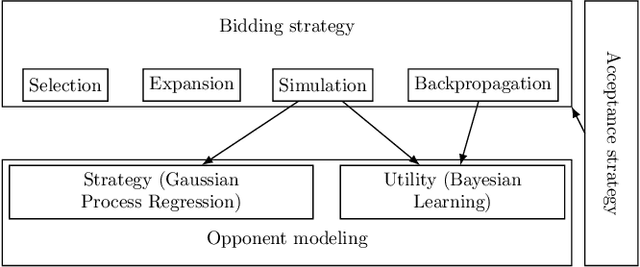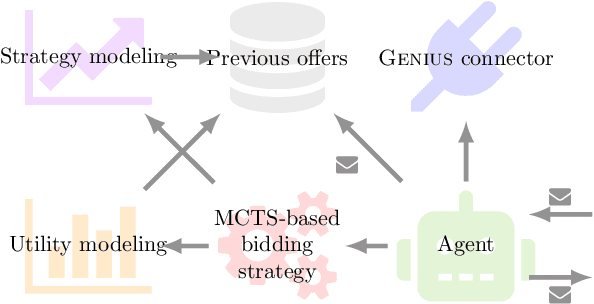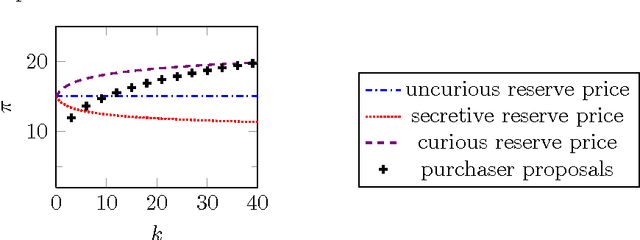Zahia Guessoum
CRESTIC
MCTS-based Automated Negotiation Agent
Sep 12, 2019


Abstract:This paper introduces a new negotiating agent model for automated negotiation. We focus on applications without time pressure with multidi-mensional negotiation on both continuous and discrete domains. The agent bidding strategy relies on Monte Carlo Tree Search, which is a trendy method since it has been used with success on games with high branching factor such as Go. It also exploits opponent modeling techniques thanks to Gaussian process regression and Bayesian learning. Evaluation is done by confronting the existing agents that are able to negotiate in such context: Random Walker, Tit-for-tat and Nice Tit-for-Tat. None of those agents succeeds in beating our agent. Also, the modular and adaptive nature of our approach is a huge advantage when it comes to optimize it in specific applicative contexts.
Curiosity-Aware Bargaining
Dec 30, 2016

Abstract:Opponent modeling consists in modeling the strategy or preferences of an agent thanks to the data it provides. In the context of automated negotiation and with machine learning, it can result in an advantage so overwhelming that it may restrain some casual agents to be part of the bargaining process. We qualify as "curious" an agent driven by the desire of negotiating in order to collect information and improve its opponent model. However, neither curiosity-based rational-ity nor curiosity-robust protocol have been studied in automatic negotiation. In this paper, we rely on mechanism design to propose three extensions of the standard bargaining protocol that limit information leak. Those extensions are supported by an enhanced rationality model, that considers the exchanged information. Also, they are theoretically analyzed and experimentally evaluated.
 Add to Chrome
Add to Chrome Add to Firefox
Add to Firefox Add to Edge
Add to Edge